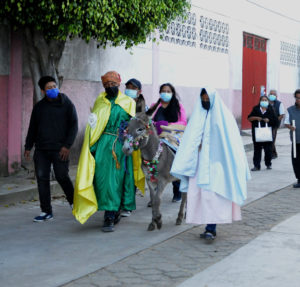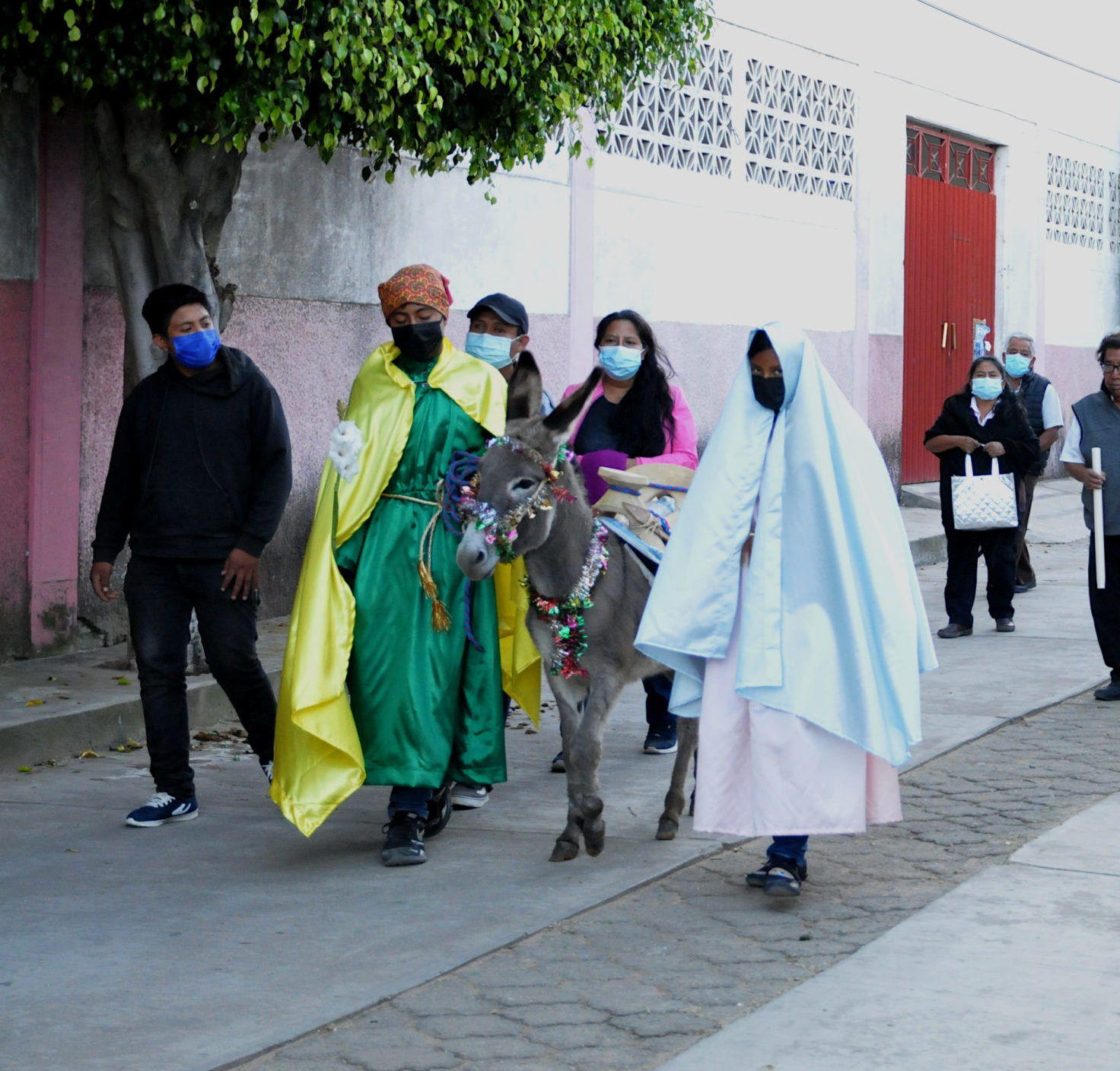Photo: Knut Hildebrandt
(Oaxaca, May 1, 2023). Miriam Flores tells us from Santa Catarina Cuixtla, Mexico that at the beginning of 2020, Mexican communities began to hear about the Coronavirus for the first time: at first, it was known that people from far away had been infected, then they found out from acquaintances who They live in large cities suffered from disease and fear. Finally, after a few weeks it was learned that the virus had reached the nearby towns and from one day to the next, entire communities decided to isolate themselves: By closing or limiting the entry and exit of their citizens. With this, the joy that characterizes many of the towns was gone: their festivals, their assemblies, their tequios (the collective work that is carried out for the benefit of the community) and all the life that is done in common.
At 83 years old, Juana María thought she had seen almost everything and never imagined that the town where she was born: Santa Catarina Cuixtla, located in a geographical transition zone between the valleys of Oaxaca and the Sierra Madre del Sur, belonging to to the Zapotec ethnic group, in southwestern Mexico, would change radically from one day to the next.
“That for us was very sad. Because we were with the door closed: we didn’t have a visit, we didn’t have anything, not a family member, not anything; We didn’t go out anywhere, nor to buy anything, only those of us at home made our breakfast, food, but only with our children, our family at home, almost nothing on the street. You do not visit a friend or a relative. For that part we feel very sad, very desperate, the same the second year.”
life together-unity
It is this separation between the common and the individual, which makes Juana María question life itself because life in the communities of Oaxaca is done collectively: in common-unity. This collective feeling, thinking and acting is very present at the party. This is how Ricardo Peralta, writer, manager of community processes and professor at the Autonomous Community University of Oaxaca, explains it to us: “The festivities in the state of Oaxaca are of the utmost importance for the maintenance of the cultural processes that take place in each one of them. of the regions. Initially, the party is the element par excellence that strengthens the community fabric.”
Making community is weaving
This is how Juana María confirms: “We really like parties, the tradition of the town that is to cheer up, live and coexist with the people who serve, who organize the party. So all the people of the town, neighbors, relatives, we help those who are serving, who are rendering their service to the temple and we like to bring them their carton of beer, their mezcal, their soda, corn for their tamales or whatever they occupy, the ladies or those who are serving and we also like to go lend a hand to support them in their activities that they do, we like it.”
This mutual aid is one of the bases for strengthening and regenerating community fabrics: friendship as a tool for conviviality, which allows one to imagine and design the environment in a reciprocal way. A completely different perspective from what Western thought and its capitalist structures offer us.

Photo: Knut Hildebrandt
The joy of being chosen as a steward
The mayordomías in Oaxaca are Catholic religious charges full of syncretism that are fulfilled within a community. Their representatives organize the festivities throughout the year. They voluntarily apply to celebrate the saint of their population. We spoke with Juan Carlos, who throughout his community life has been able to cope with the stewardship on two occasions: “My appointment as steward was due to a promise that my wife and I made. You feel joy when you are appointed steward and you have that faith to serve our Lord. We feel very grateful to the authorities for giving us that opportunity to believe in us that we can be able to fulfill that year of commitment to serve our temple.”
And Ricardo Peralta also tells us that through the festive processes processes of stewardship, compadrazgos, sponsorships are generated for the collective organization of a space for enjoyment and enjoyment in the community: “In this sense, when the person responsible for the party or the organizing committee of the party begins to manage it, it generates a kind of fabric through support relationships for the organization of the food, of the supplies, for the tasks that have to be done through each one of the elements that would make up the party and that translates into daily life: Relationships are strengthened from this mutual help, this reciprocity, this sharing that would be working.”
The Coronavirus interrupted important community processes
From the Autonomous Community University of Oaxaca, Ricardo Peralta seeks to strengthen, disseminate and reflect on the forms of learning, work and organization, from the perspective of the original peoples, with the festival being a fundamental pillar in the communal exercise. In the case of Juan Carlos, this process was interrupted as a result of the sanitary restrictions imposed by the Coronavirus: “The 2020 stewardship was very sad due to the restrictions that the authority gave us. It was a stage that cannot be easily forgotten. I still want to serve my people. As long as God gives us life and health, we are here to serve the people and the stewardship.”
The party is work and respect for deities, customs and life itself, but it also fulfills a social reason that allows to regulate the temperament of a community. Ricardo Peralta: “It is an escape valve from all those community tensions that can arise at certain times due to the very organizational process of the communities and that the party contributes to this regulation of this collective temperament, strengthens this sense of joy and enjoyment, and through this allows a much more open exercise of relations between communities, between someone within the community and also between communities because in many of these festivals when the band from the other town or the cooks from the other town attend. Well, that also allows us to strengthen the sense between each other.”
Collective processes are resumed step by step
In a few words, the festival has a very important unifying sense, for the cohesion between people and towns. When the pandemic reached these lands, fortunately, Santa Catarina Cuixtla had a solid base of reciprocity and sharing: The loss of jobs and economic scarcity was notorious but not devastating, since over hundreds of years these towns have resisted through their customs. and keep solidarity alive.
Today, more than two years after the arrival of the Coronavirus, in Santa Catarina Cuixtla you can calmly breathe that wonderful fresh and clean air that its beautiful forests provide. Here the joy and expectation is evident, the organizational processes are already visible throughout the town so that on April 30 the Lord of Cuixtla is celebrated, the highest festival of the town that will last a week.
Here you can listen to the audio on this topic by Radio matraca.
![]() The absence of the parties of the common-unity in pandemic by News Pool Latin America is licensed under Creative Commons Attribution-Share Alike 4.0 international.
The absence of the parties of the common-unity in pandemic by News Pool Latin America is licensed under Creative Commons Attribution-Share Alike 4.0 international.

